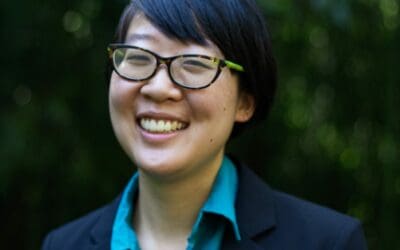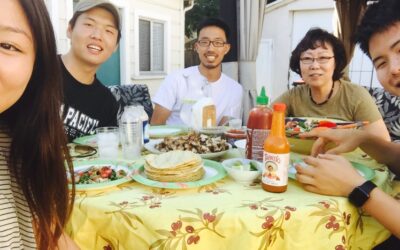Having lived in the US longer than Korea, my visit to Korea this summer presented contextual gaps. For example, shop-keepers noticed my outdated Korean vocabulary because Korean slang is used daily, which exposes my ignorance. People stared at me, looking puzzled, even if I didn’t open my mouth. There are recent vocabularies, and I had no clue what they meant.
Amidst the cultural changes surfacing with digital innovation, and changing lifestyles, one can also easily detect the persistence of cultural traits. Not all changes turn out to be positive and constructive. In the olden days, people in public transportation struck conversations with people next to them. Today, the majority of people in subways are glued to their smartphone screens with their ears plugged. Many are watching live shows streaming. What are the unintended consequences of such changes?
I made a visit to a retreat center where smartphones were not allowed. Each visitor turned in their phone as they registered. Notable during the meal time without digital access were disengaged people. People simply turned meal time at the table into a sole task of eating without even exchanging simple greetings. Sitting together as strangers in a famous Christian retreat center that advocates for communal living was one of the most alien experiences I have ever had in my entire life! What felt even more shocking was the fact that no one expected to speak to one another while eating. A young adult simply stated that table-fellowship is an aspect of American culture, not Korean.
In this monolingual country, there exists a huge generational disengagement. The younger generation seems oblivious to one of the most essential traditional cultural practices—rich table fellowship. Strong kinship and alumni/ae based social interactions keep strangers feeling like aliens. They are exempted from receiving the basic hospitality of a greeting.
It was the older generation in a public space of a countryside, not in Seoul, where older people struck up conversations, not the younger. Their robotized humanity is visible in their frozen facial expressions and disengaging manners.
In Christian faith, the older generation still lacks a culture of dialogue. As a result, much of the younger generation remains despairingly cynical toward Protestant Christianity. For instance, rather than going to church, they say that God can be worshipped everywhere. Whereas the older generation of churches and seminaries declare the crisis of Korean Protestant Christianity, we must realize that engaging with the younger generation of NPO (giving up generation), begs for attentive listening and transformation. “NPO” generation is a new term I learned while visiting Korea which refers to the younger generation who sees less chance for upward mobility and therefore, feel like they have to give up dating, marriage, a possibility of ever owning a home, and the list goes on. Furthermore, the living expense was notably escalated compared to two years ago and equivalent to New York’s.
I have noticed the drastic changes in people’s moods and behaviors that demonstrate “Don’t bother me,” when they are wired most of their waking hours. What does this mean for Christian churches in this radically changing humanity and attitudes? Would Protestant churches in crisis change their culture of monologue to dialogue?


